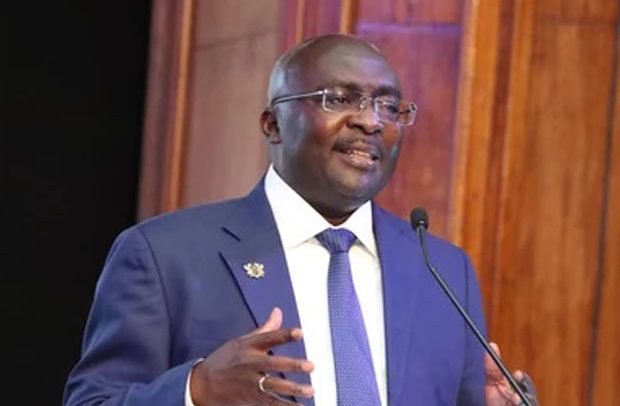Alhaji Mahamudu Bawumia
VICE PRESIDENT Bawumia has stressed the need to find new ways to address the growing concern about water and sanitation on the African continent.
He has, therefore, called for stronger collaboration between countries to improve the traditional approach to dealing with the issue of water and sanitation.
This was when he opened the “All Systems Go Africa” symposium in Accra yesterday.
The three-day conference brought together more than 250 delegates across Africa.
It also provided an opportunity for water and sanitation experts, academia, government officials, development partners and policy-makers, to engage in honest and apolitical manner to strategise in addressing water, sanitation and hygiene (WASH) challenges in Africa.
The event was on the theme: “Uniting Systems Thinking with Technical Expertise and Public Policy to Accelerate the Vision of Universal Access to Water, Sanitation and Hygiene.”
Vice President Bawumia said it was imperative to strengthen the African WASH planning and capabilities for effective service delivery to the growing population.
As a continent, Dr. Bawumia said it was imperative to tap into the unique experiences, skills and stock of knowledge of its experts to help chart a new course for improved WASH service delivery.
Information has it that out of the over half a billion people living without adequate supply of water globally, a significant proportion is found in Sub-Saharan Africa.
This was among the fundamental forces that drove African leaders to commit to a bold vision, “that everyone on the continent will have access to safe water by 2025.”
However, the Vice President admitted that the story has not changed much since it is estimated that over 95 million Africans still lack access to safely-managed water, and a further 504 million live without safe sanitation.
“This means that, millions of families, including children, risk being left without critical life-saving water and sanitation services,” Dr. Bawumia added.
Meanwhile, the African Development Bank says currently, the continent requires between $87 billion and $112 billion, to finance the execution of WASH infrastructure annually.
Vice President Bawumia noted that President Akufo-Addo, who was the Co-Chair of the Sustainable Development Goals (SDGs), had demonstrated adequate commitment to ensuring that Ghana met the 2030 Agenda for the SDGs, with equal emphasis on SDG 6.
That ambition, he said, reflected in the many projects being undertaken by the government in the WASH sector, some of which are already completed and commissioned, whilst processes are ongoing for others to commence.
Some of the projects, he said, included water supply projects in Upper East, Yendi, Tamale and Damongo Water Supply Project.
The rest are the Wenchi Water Supply Project,
Sunyani Water Supply Project, Keta Water Supply Project, Sekondi-Takoradi Water Supply Project, Greater Accra Metropolitan Area (GAMA) and Greater Kumasi Metropolitan Area Water and Sanitation Project.
The Vice President stated that the interventions in the water sub-sector are expected to result in additional 4.3 million beneficiaries having access to potable water.
According to the 2021 Population and Housing Census of Ghana on water and sanitation coordinated by the Ghana Statistical Service (GSS), the number of households that currently have access to toilet facilities has increased from 33% to 59.3%.
With respect to water, the percentage of households with access to basic drinking water has seen a significant improvement from 79% in 2018 to 87.7% in 2021.
These improvements have resulted in significant gains, with not a single case of cholera recorded over the past five years.
BY Charles Takyi-Boadu


